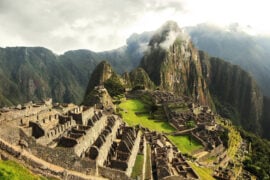In brief
On 15 January 2021, the federal government made available on its website (https://www.gov.br/mma/pt-br/assuntos/agendaambientalurbana/ProgramaNacionaldeRecuperaodereasContaminadas.pdf) the National Program for the Recovery of Contaminated Areas, object of Ordinance MMA No. 603/2020. In summary, the program seeks to expand and consolidate data and information on key issues for the management of contaminated areas in Brazil.
Comments
Despite the existence of several regulations on contaminated areas in Brazil, the lack of a consolidated database makes the work and progress in relation to the topic difficult. The federal government therefore instituted the National Program for the Recovery of Contaminated Areas in order to improve the management of contaminated areas. The program sets out a more effective implementation of public policies, with the aim of obtaining concrete results for society. The federal government also hopes to achieve improvement in the following fields related to the management of contaminated areas in Brazil:
(i) Ability of states and municipalities to adopt measures to prevent contamination of areas
(ii) Ability of states and municipalities to define their guiding values (VRQs) and consolidate information on contaminated areas
(iii) Existence of a digital platform, for standardized presentation and information sharing, to improve the registration of contaminated areas in the country
(iv) Disclosure of procedures, measures and models considered as reference
(v) Adequacy of knowledge of human resources on the management of contaminated areas at the federal, state and municipal levels
More details
The program defines four major pillars of implementation to improve the management of contaminated areas in the country:
I – Identification and Recovery of Contaminated Areas: provide federal entities with a digital platform that allows the mapping, registration and management of contaminated areas, including prioritization criteria for areas classified as having the greatest impact and/or risk, to recover and promote sustainable land use and protect people and the environment
II – Technical Qualification: seek to level the criteria and procedures for the adequate management of contaminated areas in the country, through the technical qualification of professionals from environmental agencies
III – Normative Modernization: from the technological evolution, which frequently changes procedures, modernize the norms on the subject
IV – Consolidation of Financing Lines: expand inductive measures and financing lines to meet the initiatives for the recovery of contaminated areas, so that the information is easily available with the indication of applicable financial and economic instruments to promote the decontamination of these areas, through investigations and remedies
Our Environment and Sustainability team is available for further clarifications on the subject.


